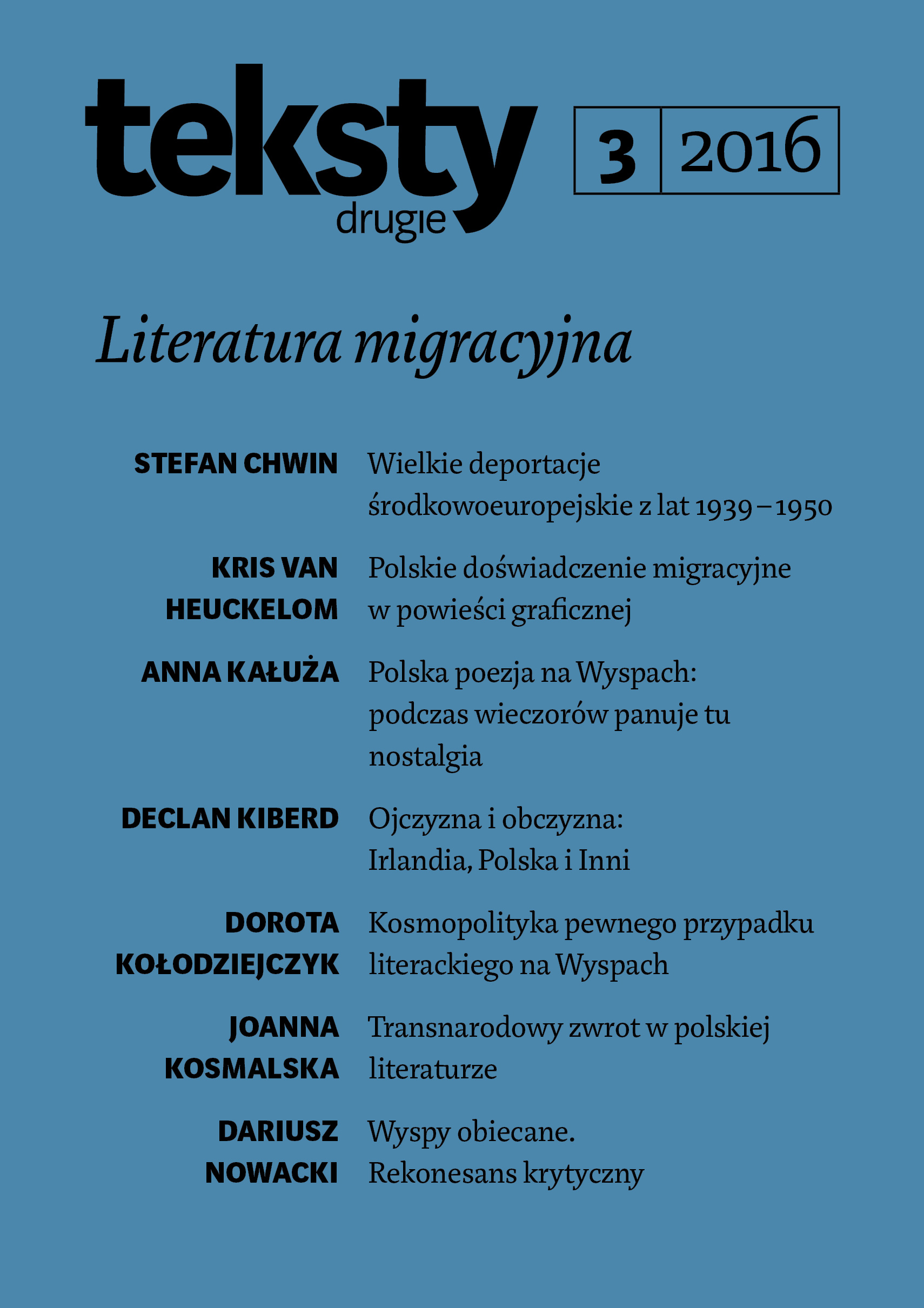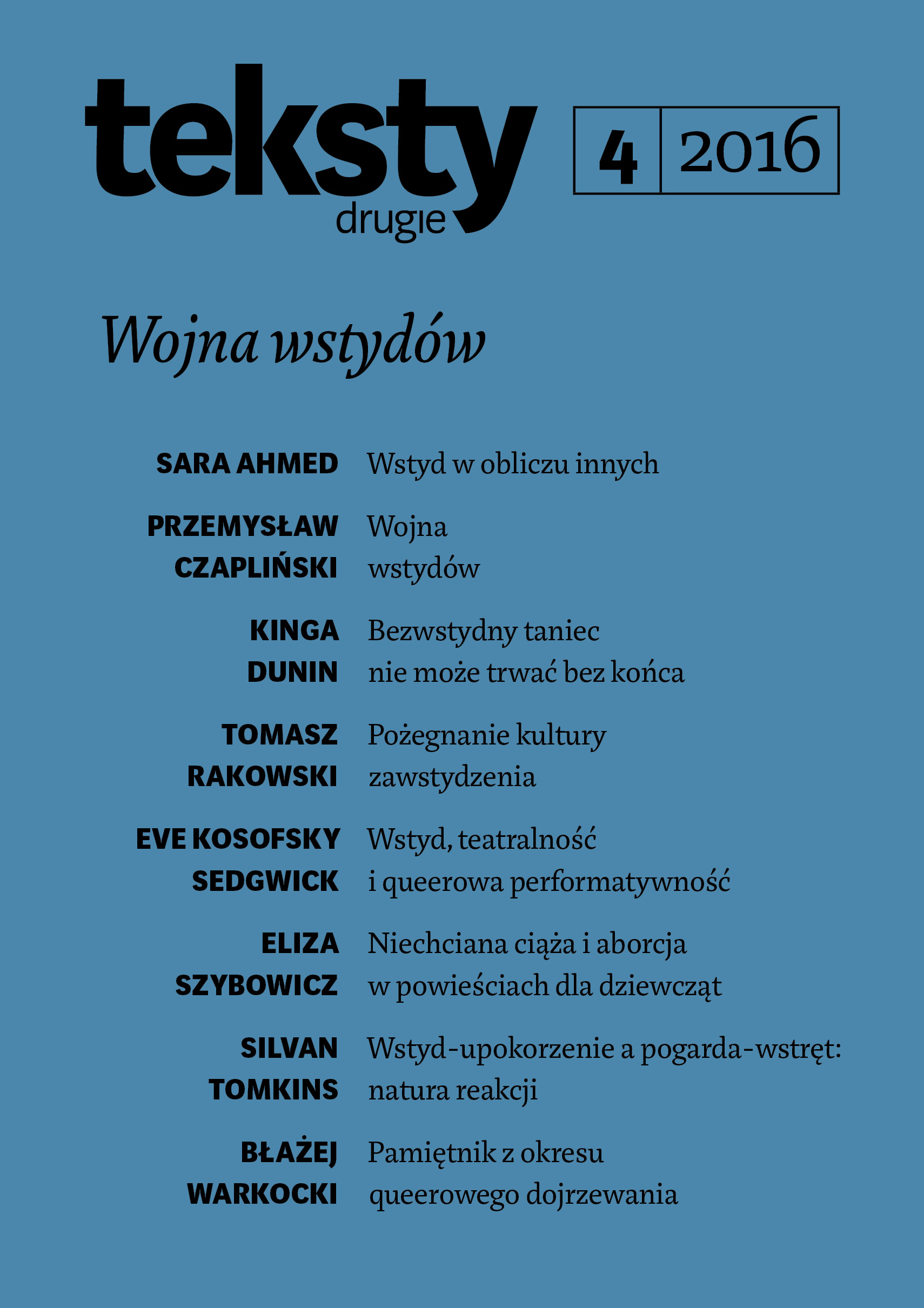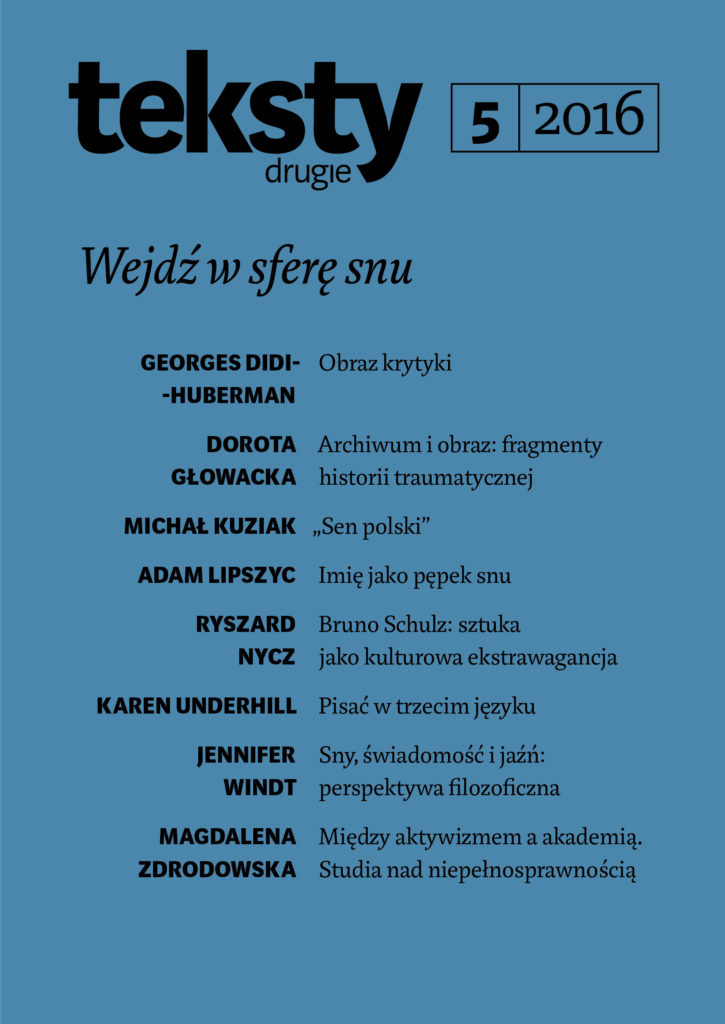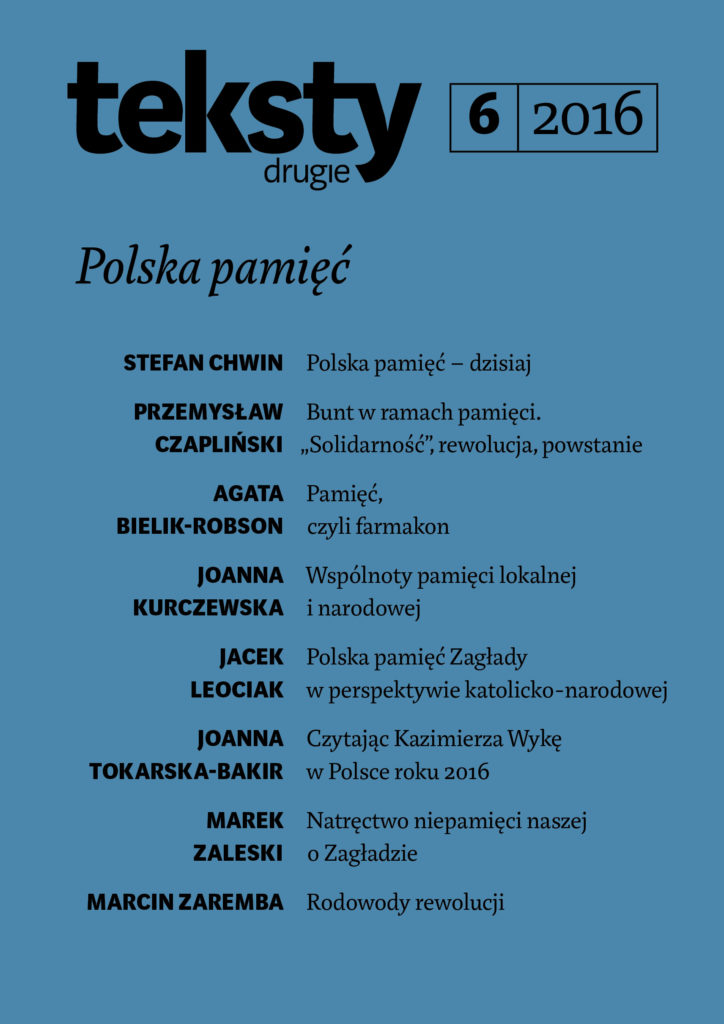
Wielkie deportacje środkowoeuropejskie z lat 1939-1950 w perspektywie aksjologicznej. Wyzwanie dla literatury
This article focuses on the basic question of what axiological perspectives are found in Polish and German deportation narratives from the second half of the twentieth century. Chwin also asks what kinds of axiological challenges mass deportation and expulsion has posed (and still poses) for literature. Numerous writers and chroniclers – witnesses as well as participants – have tackled the issue, and their writings continue to be published in Poland and in Germany. Chwin presents a preliminary typology of axiological perspectives that give direction to narratives of deportation in Polish and German literature of the second half of the twentieth century and the beginning of the twenty-first. He isolates the following basic perspectives: 1. the Nemmersdorf axiology, 2. the axiology of biographical recapitulation, 3. the axiology of deportation and of the ‘ideological fatherland’, 4. the axiology of historical recapitulation of deportation and 5. the axiology of ‘alternative history’. The article passes over the axiology of reconciliation in Polish literature after 1989 – a topic that deserves a separate study.
More...


